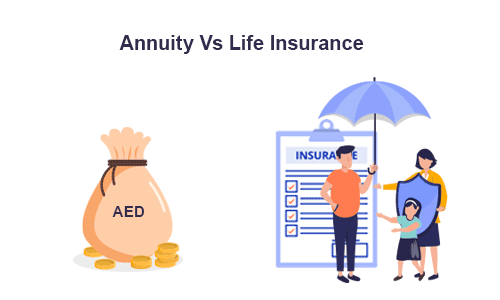Understanding Life Insurance for 80 Year Olds
Life insurance is a long-term insurance plan that financially secures your family. It helps protect them in the long run by providing money when they need it the most. In the UAE, you can find different types of life insurance plans from various insurance providers. Whether you are from another country or from the UAE itself, you will find several life insurance plans offering coverage for death, serious sickness, loss of employment due to various health issues, and more.
Best Term Insurance Plans in UAE
Some of the best Term Insurance quotes in UAE & Dubai are:





Table of Content
Is It Important to Buy Life Insurance For Seniors Over 80?
As previously stated, life insurance holds immense significance for individuals of all ages, particularly for seniors over 80. Offering financial protection for dependents becomes paramount after the insured individual's untimely death. Having life insurance guarantees that one’s loved ones, including parents, children, and spouse can maintain their current lifestyle even in case of an unfortunate demise.
What are the Primary Benefits of Buying Life Insurance for Seniors Over 80?
Having a life insurance policy, especially for seniors over 80, provides you with the benefits given below -
Providers Financial Shelter
Life insurance provides financial security to the dependents of the insured. It ensures that after the unfortunate demise of the insured individual, their family members remain protected with respect to their financial requirements and are able to pay off existing debts, cover funeral expenses, and others.
Serves as a Primary Source of Income
Life insurance can provide financial support to a family when the sole provider passes away. By replacing the individual's income, it ensures that their family can maintain their current lifestyle even in the event of an unexpected demise.
Retirement Funds/ Savings
A life insurance policy can also be classified as a form of long-term savings. This is due to the plan’s dual role in providing both financial security for the insured and their family members as well as acting as a retirement savings tool. For instance, permanent life insurance accrues cash value over time, which offers additional support during the insured's retirement years.
Helps in Paying Existing Debts
By having a life insurance policy, individuals can safeguard their loved ones from the burden of handling their unpaid obligations such as mortgages, car loans, credit card debts, or student loans in the event of their passing. This helps relieve the financial strain on their family and saves them from inheriting any remaining debts.
Affordable Plans and Coverage
Life insurance for seniors over 80 is available with different inclusions, exclusions, and riders/ add-ons. One of the primary benefits is that these plans come with affordable premiums. Individuals can find and compare several life insurance plans within their budget and buy the one that aligns with their requirements. On top of that, these affordable plans even provide you with flexible premium payment options and loan repayment tenure.
How to Choose Life Insurance For Seniors Over 80?
Before buying life insurance, you must take certain points into consideration to choose the plan that suits you the best -
Analyse Your Financial Requirements
Having a clear understanding of your financial objectives is of the utmost importance when selecting a life insurance plan. By knowing your goals, you can identify the insurance plan that precisely aligns with your unique needs.
Whether you aim to ensure your family's financial stability, settle debts, or save for your children's education, your goals will play a crucial role in determining the necessary coverage and the most suitable policy type for you. Being mindful of your financial objectives allows you to conduct a thorough comparison of various options such as term, whole life, and universal life insurance, ultimately enabling you to choose a plan that matches your requirements at economical premiums.
Determine Total Dependent and the Amount You Require
Considering the number of dependents who financially rely on you is crucial when selecting a life insurance plan. This number significantly influences the amount of coverage necessary to meet their requirements in the event of any unfortunate circumstances. For instance, if you have multiple dependents such as a spouse, children, or elderly parents, you would require higher coverage to ensure their financial security in the future.
Look for the Best Insurance Providers
When selecting an insurance plan, consider multiple insurance companies. Doing so allows you to broaden your options and discover the most suitable coverage at budget-friendly rates. Different insurance providers offer a diverse range of policies and benefits. By reviewing multiple options, you can compare their offerings, read customer reviews, and make well-informed decisions.
Shortlist and Compare the Best Plans
After identifying the top life insurance providers, the next step involves shortlisting and comparing their plans to find the most suitable one. By evaluating multiple options simultaneously, you can find the ideal life insurance plan for yourself.
To effectively compare plans, you can continue on our website and navigate to the 'life insurance' section, where you can explore the top life insurance plans available in the UAE.
Opt for a Comprehensive Plan
Always look for life insurance plans that offer maximum coverage. These plans come with a wide range of benefits beyond just death benefits. Additionally, make sure to check the riders and add-ons available with those plans.
Opting for a comprehensive plan also indicates the build-up of a cash value element for dependents during emergencies or retirement income.
Factors Affecting Life Insurance Premiums for Seniors Over 80
Mentioned below are the aspects that have a key influence on life insurance premiums for adults above 80 years old:
Age
Buying a life insurance policy at a younger age is highly advisable. It is, in fact, a wise decision to secure a policy as soon as you begin earning. This approach is beneficial because as you grow older, the premiums tend to rise.
As you are more prone to developing health issues as you grow old, this leads to insurance companies charging higher premiums to offset this heightened risk. Thus, buying life insurance at a young age can help you lock in more favourable rates and better financial protection for the future.
Employment Status
Your occupation plays a significant role in determining the cost of your life insurance. For example, if you are a miner, working in an industry with inherent hazards, or involved in any other job that involves high-risk activities, you are more likely to face higher insurance premiums.
Current Health Condition
Your health condition plays a big role in deciding how much you have to pay for life insurance. Insurance companies charge higher premiums for people who drink and smoke regularly. Additionally, if you have certain diseases like heart problems or diabetes, your premium will also be higher as these health issues may worsen your overall health and decrease your life expectancy.
Policy Tenure
The duration of your life insurance policy has a direct impact on its cost. Typically, a policy held for a longer period incurs a higher price as the insurance company provides coverage for an extended duration. On the other hand, a policy with a shorter term usually comes with a lower cost.
Premium Payment Frequency
The frequency of premium payment that you select for your life insurance plan can also impact your overall expenses significantly. Insurance companies typically offer various payment frequency options, such as yearly, semi-annually, quarterly, or monthly.
Opting for more frequent payments (monthly or quarterly) usually results in a higher total payment amount. This is because insurance companies incur additional administrative costs with frequent transactions. On the contrary, if you choose to pay annually or semi-annually, your total payment amount is likely to be on the lower side.
More From Term Insurance
- Recents Articles
- Popular Articles







.jpg)





.jpg)
















.png)







